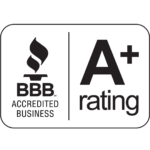Can you sell your art in an Art Cooperative gallery?
Can you sell your art in an Art Cooperative gallery?
(Transcription)
Artist, Cynthia Law, Garden Grove, California
QUESTION: What were your challenges?
Cynthia Law: To sell my work and get more people to buy my work.
QUESTION: What have you tried?
Cynthia Law: For the past few years I’ve been in, not too often, but I was in some art shows or one-day shows, but nothing really ever happened in terms of selling my work.
QUESTION: Did you sell your art?
Cynthia Law: Yes, I’m grateful that I can put my work in a physical space that an art lover can walk in and appreciate the artwork, but in terms of getting people to buy my work, it never goes anywhere.
QUESTION: What are the art gallery’s terms?
Cynthia Law: I have to pay a monthly $325 rent. I’ve been there for three months, so that’s like almost $1,000.
QUESTION: What were your challenges?
Cynthia Law: I was very lucky to sell one piece and that piece was $850.
QUESTION: Did you have to pay a commission and rent?
Cynthia Law: 15% commission.
QUESTION: How did they calculate the commission?
Cynthia Law: Actually the way they did it was kind of weird because they charged the customer tax, so it came out to be like $900 something and then it was 15% of the $900.
Ann Rea: Your commission should not in any way be calculated based on sales tax. That’s wrong.
QUESTION: Do you have to volunteer too?
Cynthia Law: I have to sit in the gallery for a minimum of three days a month.
QUESTION: Did the gallery visitors buy art?
Cynthia Law: 99% of the time they came and they walked around, they looked at the art and then they left.
QUESTION: Are art galleries conducive to making connections?
Ann Rea: Most independent artists are successful because they have relationships with their collectors and their tribe, as you started off saying. The gallery, you can kind of feel the tension in the air. Like people are bored out of their head because they’ve been sitting there for three days and no one’s bought anything. You can feel it.
QUESTION: Who comes into the co-op gallery?
Cynthia Law: The visitors were from out of town and they were there to enjoy their vacation or whatever. They love to look at art and they know that area has a lot of galleries, so they came in and they looked at the art. That’s it.
QUESTION: What have you learned in this program?
Cynthia Law: I’ve learned that I need to find my tribe. Before I started taking the class, I didn’t really know that I need to find my market and the people who would love my artwork.
QUESTION: What else have you learned?
Cynthia Law: That I have to work on my ability to connect with people because this is one of my weaknesses. I am willing to work on that and I know it’s important for myself to communicate myself better and connect with people better so I can connect with my tribe.
QUESTION: Why do you want to sell your art?
Cynthia Law: Because I’m not going to stop making art. Because that’s something I’ve always loved to do, ever since I was a kid. I’ll be extremely unhappy if one day I cannot be creative anymore.
QUESTION: What do you want?
Cynthia Law: I want to make some money selling my work so I can have more reason to keep creating my work.
QUESTION: Do you have support?
Cynthia Law: No. Every one around me has no idea what it’s like to be an artist or they have heard about; “Oh, you want to be like Van Gogh? You want to be like Beethoven? You want to suffer?” It’s very discouraging. I went on by myself. I just have to make artwork. If I stop doing that, I’m unhappy.
QUESTION: Are the other artists in the gallery successful?
Cynthia Law: They have been in that same gallery for at least two or three years. Some of them like 16 years. Most of them are older than me, but I don’t know how they can keep showing their work there and pay monthly rent for that many years.
QUESTION: How does this gallery make money?
Cynthia Law: By the monthly rental income, definitely.
QUESTION: Why were you asked to join?
Cynthia Law: I was there because one of them asked me to join the gallery because some other artists was leaving so they needed someone else to fill in that spot. Someone who can keep paying the rent. We’re all there and we all show our work there so that that physical space, the gallery, can still exist. It’s like we’re serving the gallery.
QUESTION: Why is this a problem?
Ann Rea: That is how a lot of galleries are doing this now. Not just artists cooperatives, but commercial galleries are charging rent to the artists and then they don’t really have to worry too much because they have that monthly stream of income they can count on. If some art sells, it’s icing on the cake, but they don’t have to really worry about it.
QUESTION: How much art do they sell?
Cynthia Law: My piece was the first piece sold in this year and prior to beginning to show my work there, I did ask one of them, ‘well when was the last you made a sale?’ And they said it was before Christmas last year.
QUESTION: Is the gallery close to you?
Cynthia Law: It not that close to where I live, and it’s like another 25 to 30 miles of one way driving to the gallery and then back and forth. It’s like another 50 to 60 miles.
QUESTION: Should other artists apply to enroll in this program?
Cynthia Law: This is the real deal. You’re learning how to make your own art business so you don’t have to go through galleries and agents and of course that means you have to work on your part a lot. This is why I understand there’s a psychological journey part in this course, which I really need. I think for some reason most artists are introverted and in my case I’m really horrible in connecting with people and as soon as I decided the gallery thing just doesn’t work for me and I was like, there’s nowhere else to go. So if you’re an artist, what are you going to do? You have tried the gallery, you have tried shows, you have tried competition jury shows and are you selling your work? Not really? Then try this because I calculated the money that I put into the gallery, and if you have that money and you can pay rent and do that and sit in the gallery then you have the money to pay for this program.

Ann Rea, Fine Artist & Mentor
Ann Rea is a San Francisco-based fine artist. She created Making Art Making Money™, the leading and most reputable business program for fine artists since 2005. Rea’s art and business savvy have been featured on ABC, HGTV, Creative Live, The Good Life Project, in the book Career Renegade by Jonathan Fields, the San Francisco Chronicle, Art Business News, Fortune, and Inc. Magazines. Rea’s artistic talent was commended by her mentor, art icon Wayne Thiebaud.


Personally, as an artist, I would never pay that much rent to any sort of gallery. Now, I know that this happened in CA (I think) and it’s an expensive state to live in. I know, because I grew up there. 15% is a good deal and working the 3 shifts a month isn’t all that bad either. They are taking advantage of artists and that sucks. Some of us have a hard enough time scrapping together $$ to pay bills.
Jeff
That’s why I quit the vanity gallery I was in a year ago. Sold 8 paintings but lost $800 in 18 months.
Not good for artists
Thanks,
Mike
I’m so sorry to hear this Mike. Your experience is why I do this work to help artists take their power back from the scarcity and permission based art establishment and to join The New Creative Class: https://makingartmakingmoney.com/art-marketing/